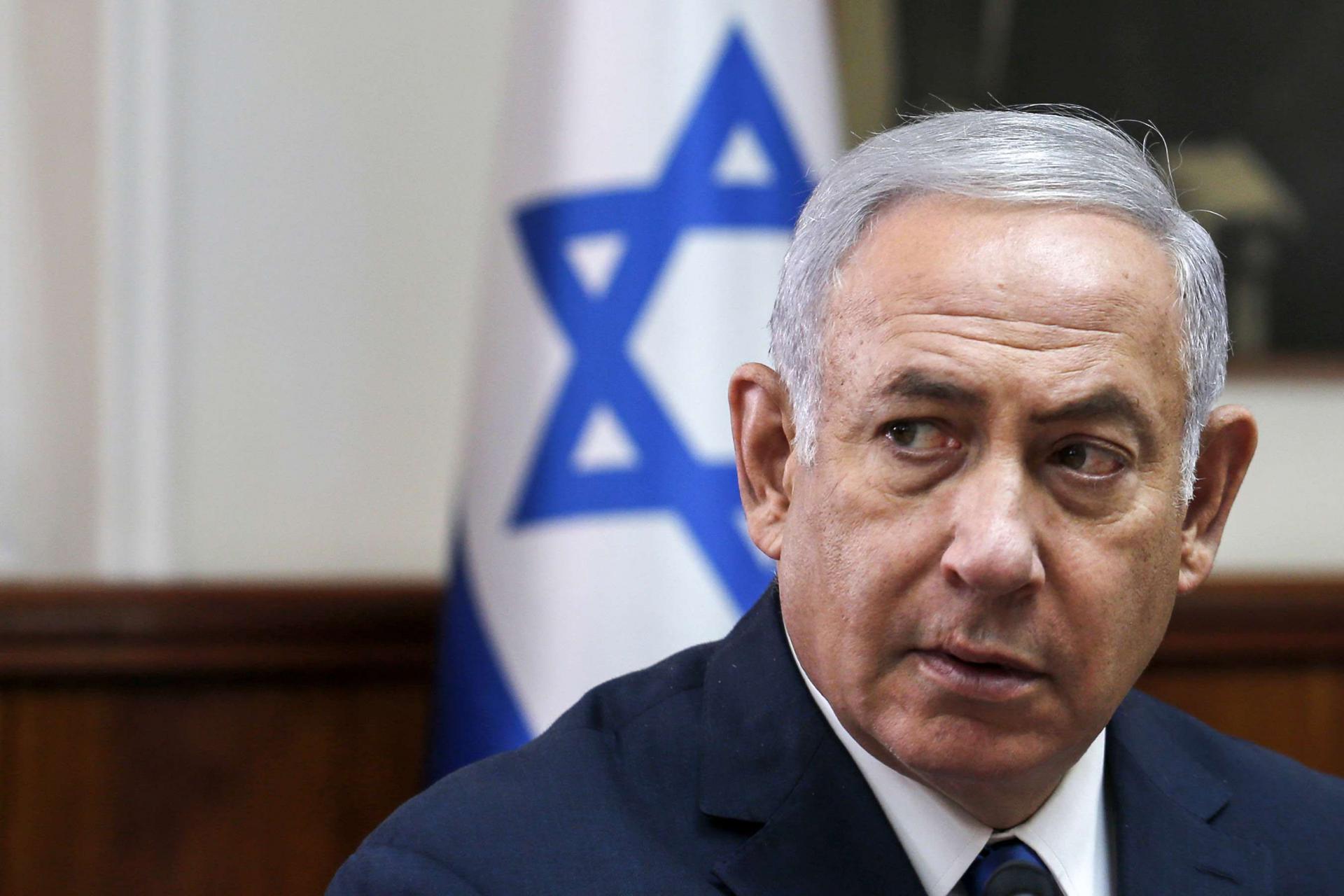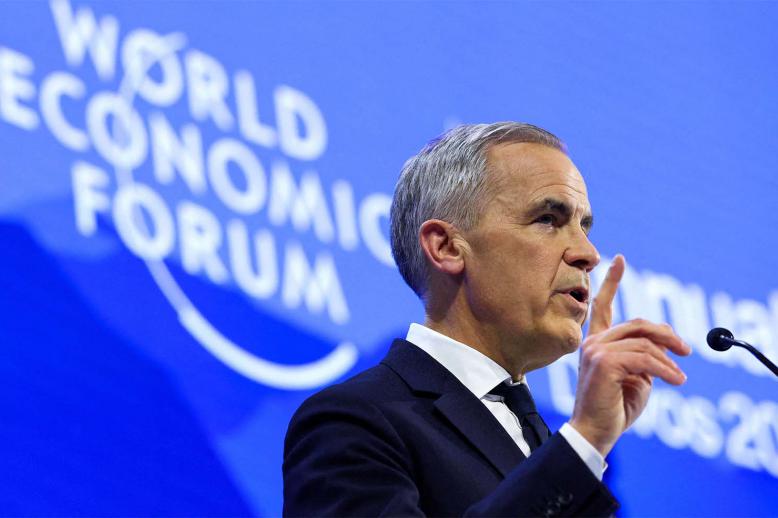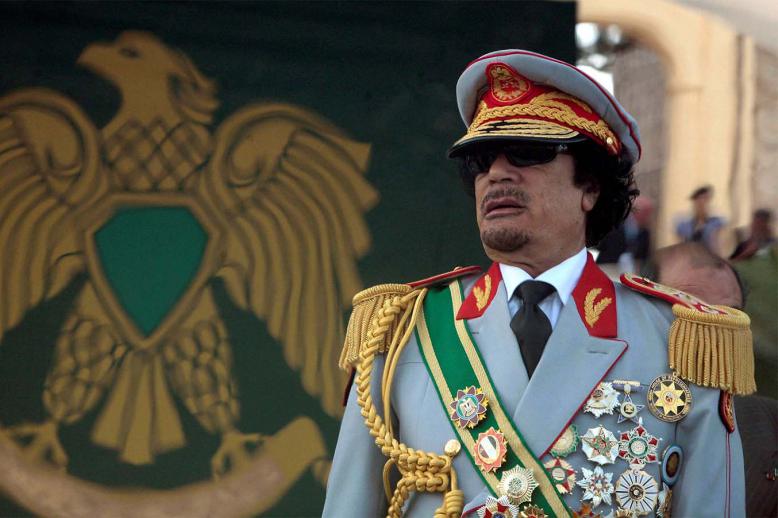Some Israelis will be more equal than others
Israel’s Knesset passed a new basic law in the early hours of 19 July. Shortly after the vote Prime Minister Binyamin Netanyahu told the house: ‘This is a defining moment in the history of Zionism and the history of the state of Israel ... 122 years after Herzl published his vision [of a Jewish state], we have stated by law the basic principle of our existence.’
Netanyahu seems to see himself as the true founder of the Jewish state: ‘Israel is the nation-state of the Jewish people,’ he says, ‘a nation state that respects the individual rights of all its citizens, and in the Middle East only Israel respects these rights.’ But by prioritising Jewishness in its definition of the state, some provisions of this law undermine the rights of two million non-Jewish citizens, including the sizeable Arab minority. The law states: ‘The state of Israel is the national home of the Jewish people, in which it fulfils its natural, cultural, religious and historical right to self-determination. The right to exercise national self-determination in the state of Israel is unique to the Jewish people.’ Specifying Hebrew as the official language of the state deprives Arabic of equal status; Arabic has a ‘special status’ that ‘will be regulated by law’. In the absence of a constitution, this basic law will be added to the existing legal corpus.
The law does not refer to Israel’s declaration of independence on 14 May 1948, which is unsurprising since Netanyahu fails to mention it in his writings on the history of Zionism. The founding text of Israeli law was proclaimed by David Ben Gurion, the state’s first prime minister: ‘The state of Israel will be open to the immigration of Jews from all countries of their dispersion; will promote the development of the country for the benefit of all its inhabitants; will be based on the precepts of liberty, justice, and peace taught by the Hebrew prophets; will uphold the full social and political equality of all its citizens, without distinction of race, creed, or sex; [and] will guarantee full freedom of conscience, worship, education, and culture.’
Netanyahu sets himself apart from Zeev Jabotinsky (1880-1940), the nationalist, antisocialist founding father of Revisionist Zionism. As head of the rightwing Likud (successor to Herut), he often quotes Jabotinsky, but does not mention that by 1940 he favoured a Jewish-majority state that would be a dominion of the British empire, with a Jewish president and an Arab vice-president. Its citizens would all be equal, regardless of faith or ethnic origin. Jabotinsky believed the Jewish and Arab communities, and their languages, should be equal before the law. Arye Naor, cabinet secretary in Menachem Begin’s Likud government from 1977 to 1982 and now emeritus professor of political science at the Hebrew University of Jerusalem, points out that ‘Jabotinsky’s liberal nationalist vision is diametrically opposed to the extremist neoliberalism of this new law on the “Jewish nation-state,” which denies the minority any collective rights. That is the road to ethnocracy.’
In the mould of his father Netanyahu is in the ideological mould of his father, Benzion Netanyahu, who died in 2012. Netanyahu Sr, an academic who was briefly Jabotinsky’s secretary, developed during his career a catastrophist theory of Jewish history designed to show that antisemitism had originated in ancient Egypt, before the Christian era, and that the peril still persisted. In a joint interview with his son on Israel’s Arutz 2 (Channel 2) in 2009, he said: ‘We are still in danger of extermination ... Some think this extermination — namely the holocaust — is over, but it isn’t.’
To Benzion Netanyahu, the Arabs were the enemy. He said in 2012: ‘This land is Jewish; it is not for the Arabs. There is no place here for Arabs, and there will be no place for them. They will never agree to our conditions.’ He gave his son a mission to ensure that Israelis were fully aware of the danger: ‘One of the most serious problems we have here in Israel is the leftist belief that the Arabs are no longer determined to destroy us.’ These ideas are discussed in Binyamin Netanyahu’s books, published shortly before his first term in office (1996-99).
Under pressure from US president Bill Clinton, Netanyahu had to shake hands with PLO chairman Yasser Arafat and sign agreements that included the withdrawal of Israeli forces from part of the city of Hebron. This concession, which Netanyahu could not have refused without risking a major crisis, cost him support among rightwing voters and settlers at the general election in 1999. Western leaders had seen it as a sign of pragmatism.
When Netanyahu was re-elected in March 2009 he had to contend with Barack Obama, also newly elected, who asked him to recognise Palestine and stop settlement building. In a solemn speech on 4 June, Netanyahu used the words ‘Palestinian state’ for the first time. But the conditions he set revealed his ideology: the Palestinians would have to ‘recognise Israel as a Jewish state.’ In Ramallah, Mahmoud Abbas, by then president of the Palestinian Authority, protested that this had never been suggested during the negotiations with Egypt and Jordan, nor during the Oslo process; there was nothing in Israel’s declaration of independence that defined it in this way.
‘Reformatting Jewish society’ The basic law was presented to Knesset in 2011 by Avi Dichter, then a member of Knesset (MK) for the centre-right party Kadima, now for Likud. It set out to ‘defend the character of Israel as the nation-state of the Jewish people, in order to anchor in Israel’s basic laws the state of Israel’s values as a Jewish and democratic state, in the spirit of the declaration of independence.’ The right wanted to define Israel first as a Jewish state, and then a democratic one. The left insisted on ‘democratic and Jewish.’ The debate continued until Netanyahu felt the moment was ripe.
The coalition government he formed after the 2015 election — the most rightwing in Israel’s history — intends to pursue settlement while avoiding a clash with the ‘international community,’ which remains half-hearted in its protests. In the Knesset, Netanyahu’s government demonstrates its ideological cohesion by pursuing common objectives, represented by key laws aiming to reduce the influence of NGOs on civil society, ban boycotts of settlements, and deny access to education to organisations that do not abide by the principles set out by the education minister — Naftali Bennett, leader of the religious, ultranationalist and neo-messianic Jewish Home. This law targets groups such as Breaking the Silence, the association of former IDF members that opposes the occupation of Palestinian territories, and Btselem, which defends human rights there. The ‘reformatting’ of Jewish society conforms to Benzion Netanyahu’s vision. Justice minister Ayelet Shaked, also a member of Jewish Home, is leading the fight against Israel’s Supreme Court, which the government considers too liberal. The judges are due to examine a number of appeals against the basic law, and Shaked has warned that ‘if they annul it, it will be war.’
Internationally, conditions could hardly be better for the prime minister. In Donald Trump, the Israeli right has a solid friend in the White House. And in Europe, Netanyahu can count on the support of the Greek and Cypriot leaders, with whom he has agreements. He has the unfailing support of the Visegrád Group (the Czech Republic, Hungary, Poland and Slovakia) led by Hungary’s Viktor Orbán, which will allow him to block potential condemnation by the EU.
Sociologist Eva Illouz points out that Netanyahu has a strong ideological affinity with some illiberal regimes: ‘They are all opposed to ethnic, religious or racial dilution of their countries. Israel is a model for countries that oppose immigration and affirm the supremacy of one ethnic group, but still claim to be democratic — as they must if they want to continue to enjoy the various privileges it confers on them.’ Netanyahu seeks their support — even if it means ignoring their antisemitism. Journalist Nitzan Horowitz, a former MK for the secular leftwing and social-democratic Meretz party, sums up the principle on which Netanyahu’s links with the Hungarian and Polish leaders is based: ‘Forgive my antisemitism and I’ll forgive your occupation [of the Palestinian territories]’.
Before its adoption by 62 votes to 55 (with two abstentions), Dichter’s bill was amended. It no longer contains the word ‘democracy’ and the article providing for the establishment of settlements on a religious or ethnic basis has been rewritten to read: ‘The state views Jewish settlement as a national value and will labour to encourage and promote its establishment and development.’ Mordechai Kremnitzer, a former assistant director of the Israel Democracy Institute, says this does nothing to change the law’s racist character.
‘Nation-state law is essential’ Immediately after the vote, in plenary session, the Arab MKs of the Unified List, who have 13 seats, tore up copies of the law and accused the government of imposing an apartheid regime that validates and reinforces discrimination. On 11 August, tens of thousands of Israeli Arabs marched through Tel Aviv to demand the annulment of a law that makes second-class citizens of their 1.8-million community (20% of the population). Many Jewish sympathisers and major leftwing figures, including two former generals, supported them. Palestinian flags alongside Israeli flags prompted Netanyahu to say: ‘This is why the nation-state law is essential.’
Israel’s 145,000 Druze and 5,000 Circassians (1.6% of the population) feel betrayed. Having sworn allegiance to the state, they are required to do military service (32 months for men), and they are more likely than Jews to enlist in the regular army: 10% become officers, some reaching high rank. A Druze major-general is on the general staff; several major-generals have commanded large infantry units. Druze and Circassians also have commanding roles in the police and security services.
On 4 August tens of thousands of Druze, supported by many Jews, demonstrated in Tel Aviv, chanting: ‘Equality, equality’ and ‘We are not second-class citizens.’ Their spiritual leader, Sheikh Mowafaq Tarif, said: ‘We don’t need anyone to tell us the meaning of sacrifice, loyalty and devotion ... Unfortunately, despite our unreserved loyalty to the state [of Israel], we are not considered as equals. We are totally loyal to the state and its declaration of independence. What more do they want from us?’ The Druze have rejected Netanyahu’s conciliatory offer to adopt an ad hoc law that would give them special status within the Jewish state, with economic benefits for non-Jews who do military service.
The new law has fundamentally changed the religious, cultural and political relationship between Israel and the Jewish communities of the diaspora. In August, Ron Lauder, president of the World Jewish Congress, warned the Netanyahu government, accusing it of undermining the ‘covenant between Judaism and enlightenment ... when Israel’s government appears to be tarnishing the sacred value of equality, many supporters feel it is turning its back on the Jewish heritage, the Zionist ethos and the Israeli spirit ... the new policies will not strengthen Israel but weaken it, and in the long run they may endanger Israel’s social cohesiveness, economic success and international standing ... young Jews might not acquiesce to an affiliation with a nation that discriminates against non-orthodox Jews, non-Jewish minorities and the LGBT [lesbian, gay, bisexual and trans] community.’
Netanyahu believes opinion polls strengthen his position. In a study by the Israel Democracy Institute, 52% of Israeli Jews thought the new law was necessary; 60% thought it should have included the principle of equality; 69% of rightwing voters, and 72% of Israelis who defined themselves as religious, approved of its wording. With the electorate behind him, Netanyahu could consider an early election to strengthen his position.
Charles Enderlin is a journalist based in Jerusalem. Translated by Charles Goulden.
Copyright ©2018 Le Monde diplomatique — distributed by Agence Global







